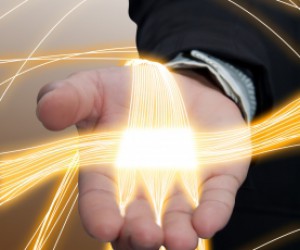The reality is that the rest of the world is developed or near developed, the only place left for an investor to sink his teeth into, is the African continent – and to not be a part of it, means potential investors will be losing out says Van der Walt.
What is often seen as a negative in Africa and hampers Africa’s development: Lack of skills, lack of infrastructure, slow broadband, which inhibits an investor to invest in Africa, is exactly why it’s a great opportunity to invest in these areas.
"Organisations who’s looking for growth at this stage need to focus very clearly on Africa,” he said.
Africa has seen great interest from the Chinese and according to Van der Walt, this is encouraging investment on the continent because they are focused on infrastructure development, something that is sorely needed in Africa.
But there are at times negative feelings about China’s participation in South Africa’s economy. Van Der Walt has a different view point on this subject.
“I think the view of China as an investor in Africa is very skewed. I don’t think people truly understand the magnitude of the investment that they are bringing to the continent. Very often we think that China only take minerals from Africa and they don’t leave anything behind but this is certainly not the case.”
Infrastructure development is the key to economic development for South Africa. “There is a lot of infrastructure being set up and this infrastructure is exactly what we require to build economies. One of the biggest challenges we have at the moment is around education and skills and the right education and the right skills but certainly with regards to infrastructure things are starting to happen and that’s what we want to see more of.”
According to Van Der Walt, each African country has its own products and services that speak to the people of that country. To use the same model, or example in other African countries would be a dismal failure.
However, there are opportunities within Zambia, Kenya, Egypt, Morocco even Mali where there’s conflict there are specific opportunities and it’s taking the right product to the right market at the right time that will enable business success.” explains Van Der Walt.
One of the biggest issues with the African continent is its fragmented operations across borders. So the question is: How can Africa become more unified in its operations across African countries?
“I believe that Africa needs to co-operate in a far more synchronised way: we need less tariffs, tariff barriers, we need more internal trade, we need to find ways of stimulating intra-Africa trade in a significant manner.
These things are currently on the cards and we are seeing developments with regard to this. We’re seeing that the different blocs east, west, north, south central are starting to co-operate more. There needs to be significant movement still before we get to a place where goods and services and people can move easily across borders and create value through economies of scale.”
South Africa
On the one hand, South Africa - like the rest of the world - is experiencing energy output issues and on the other hand, there is a requirement for all energy resources that are harnessed to provide greater sustainability than just creating electricity. The fact is, that South Africa is running out of generation capacity. The old infrastructure on the distribution side is hampering progress and there are challenges with regards to things such as nuclear waste, and no proper energy storage facilities for the renewable energy industry. The challenges are great but at the same time the opportunities are equally great.” explains Van Der Walt.
Despite the problems South Africa faces, significant investment is currently coming into the country as a result of the energy need that we need.”
Eskom plans to spend about R320-billion over the next five years: 55% probably going into generation, 15% in transmission, 15% in distribution and then the remainder on some other projects that they have going.
The cost of energy in South Africa is expensive and the average South African is struggling to pay for any more increases in electricity costs. Often, it is Eskom that is blamed.
People are emotional about nuclear energy. When asked about the atomic power station issues and how far South Africa is actually down the road, Van Der Walt said: We’re sitting on a knife’s edge at the moment with regards to the decision. In terms of a clean bass load, there’s a really big, strong case for increased nuclear.
On the negative side there’s obviously substantial costs that are involved with this. There are skills that we don’t have at the moment that we will need to train for. There’s the big problem of nuclear waste although the volumes are small comparatively to the amount of energy that you generate.
Up till now, we have spoken of the various areas of energy sectors, but in essence, one or the other isn’t the best alternative, a mixed use of all types seems the more sustainable route, even when renewable energy like wind and solar have higher environmental risks to bird and animal life.
“The energy mix requires a portion of renewable energy. It’s the balance that is more important. You can’t just implement renewables. You can’t just implement coal, you can’t just implement nuclear, you need to have a balance. We need to optimise the energy mix so that we get the best results for what we require.”










